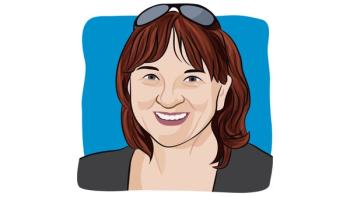
If you’re struggling out there, feeling a little broken inside, I see you. And if you’re not, man, I wish I were you.

Debbie Legault is the mother of a young woman who was diagnosed with breast cancer at 27. Debbie chose to share the experience of being a full-time caregiver to her daughter during treatment in a blog called “Mom … It’s Cancer” and published the compilation of those thoughts in book format when active treatment was completed. Legault soon realized that the end of treatment was actually just another beginning and continues to write about the realities of survivorship both from her perspective as a caregiver and from her daughter’s point of view.

If you’re struggling out there, feeling a little broken inside, I see you. And if you’re not, man, I wish I were you.
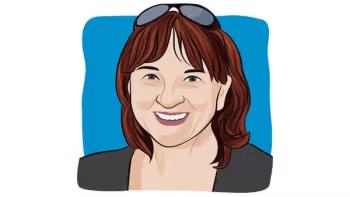
Christmas is my favorite time of year. Since my child was diagnosed with cancer, however, the only gift I want is one more Christmas with her being here.

I usually write about my daughter’s cancer, but my friend’s stage 4 breast cancer journey showed me the limits of strength and the need for help.
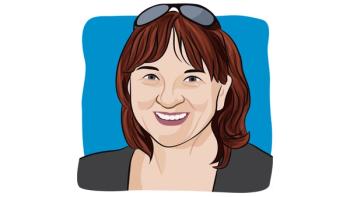
I share how the nurses who cared for my daughter during chemotherapy brought comfort, connection and humanity that carried us through our hardest moments.
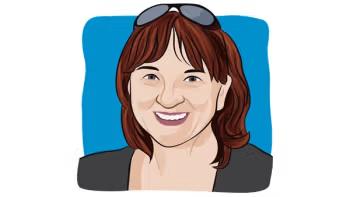

Denial is a very powerful thing, but it is one that can have serious negative consequences.
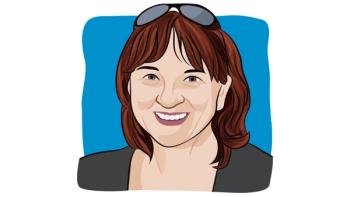
It’s October, and social media sites are full of vendors selling merchandise featuring pink ribbons. But here's the thing...

When my daughter was diagnosed with breast cancer at 27, I watched her show courage through every treatment, side effect and moment of resolve.

As we head into Fall, I’ve been thinking about how much this season represents my daughter’s cancer experience for me.

I share how my daughter’s cancer team let me stay involved and supported, helping me remain present as her mom through every step of treatment.

When my daughter had cancer, my other children carried our family with grace, compassion and strength I didn’t know I’d one day need from them.

When my daughter was diagnosed with breast cancer, writing our truth helped me and others face the harsh realities and lasting impact of cancer survivorship.

Survivorship after cancer can be harder than treatment. My daughter faces lasting side effects, fear, and uncertainty while building a life she hopes to live fully.

I stay in the cancer social media world because it helps me cope, even when friends disappear and I’m left wondering if they’re resting, retreating or gone.

Cancer research saved my daughter’s life, and despite setbacks, we must support these efforts to ensure more lives are saved from cancer.

This Christmas, my wish for all of you is that you read this and feel seen, that someone out there knows how very hard this is for you.

My daughter faced the difficult decision of balancing the potential benefits and risks of cancer treatment, including the long-term heart complications associated with Herceptin.

As a caregiver to my daughter who had breast cancer, pink takes on a new meaning for us — one I’m not quite a fan of.

After being my daughter’s caregiver during breast cancer, I now have a different relationship with my body, especially when I feel something different.

As a society, we shouldn't accept the "norm" of people younger than 50 receiving diagnoses or dying from cancer.

Undergoing cancer treatment is like pulling weeds — we hope we got the last of it and it does not return, but we can never be sure.

Accepting the unknown and understanding why random things happen helps me be hopeful as my daughter reached five years of cancer survivorship.

Oct. 8, 2019 was the last day of chemotherapy for my girl.

I found comfort and peace on social media from different cancer communities.

When my daughter was going through cancer, I realized that connecting with one her peers going through a similar experience was incredibly helpful.

Most cancer memories are triggering for me, but one place is particularly sweet when I think back on it.

After my daughter was diagnosed with cancer, I began to share my experiences through writing, and through that I found camaraderie — and heartbreak.

As a mom, I have the “worry gene,” though it got much worse when my daughter was diagnosed with cancer.

My husband is "that guy" who always takes care of everyone else, so his recent cancer scare was unfathomable.

People who have never experienced cancer may think that life continues as normal after treatment is done, but that’s far from reality.

Published: June 12th 2021 | Updated:
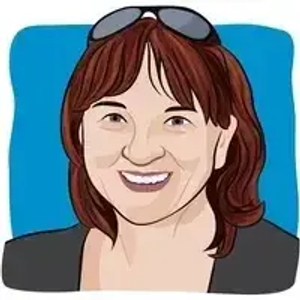
Published: August 5th 2021 | Updated:

Published: January 10th 2021 | Updated:

Published: March 4th 2022 | Updated:
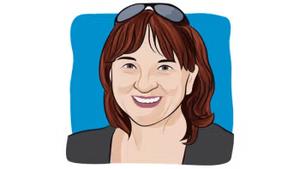
Published: November 5th 2025 | Updated:

Published: May 30th 2021 | Updated: